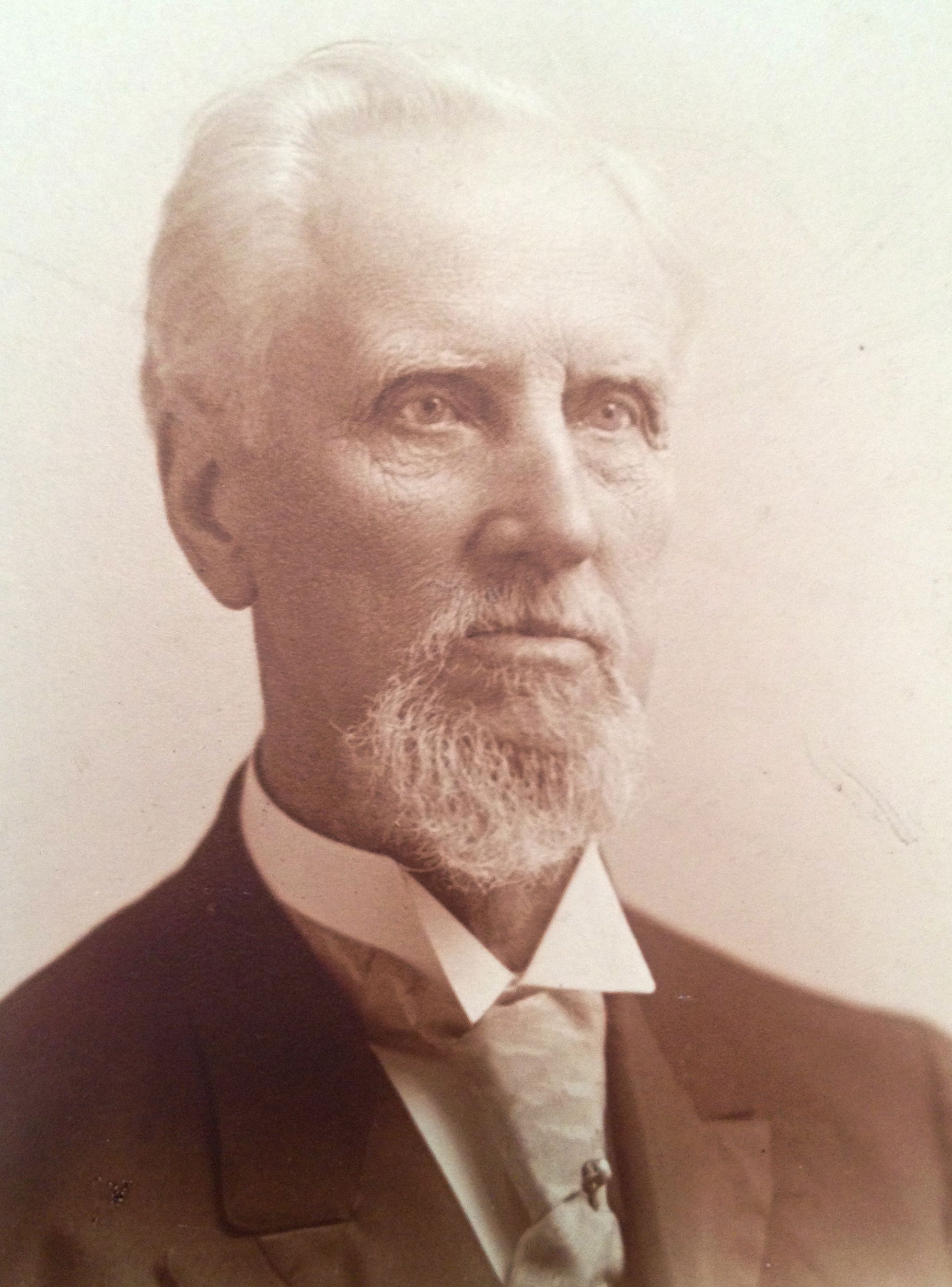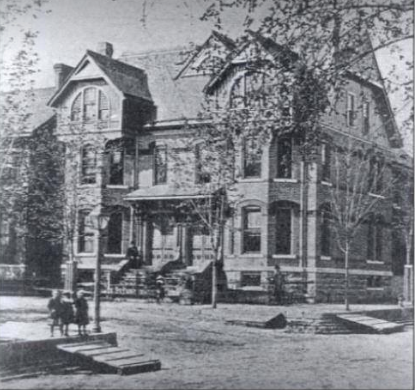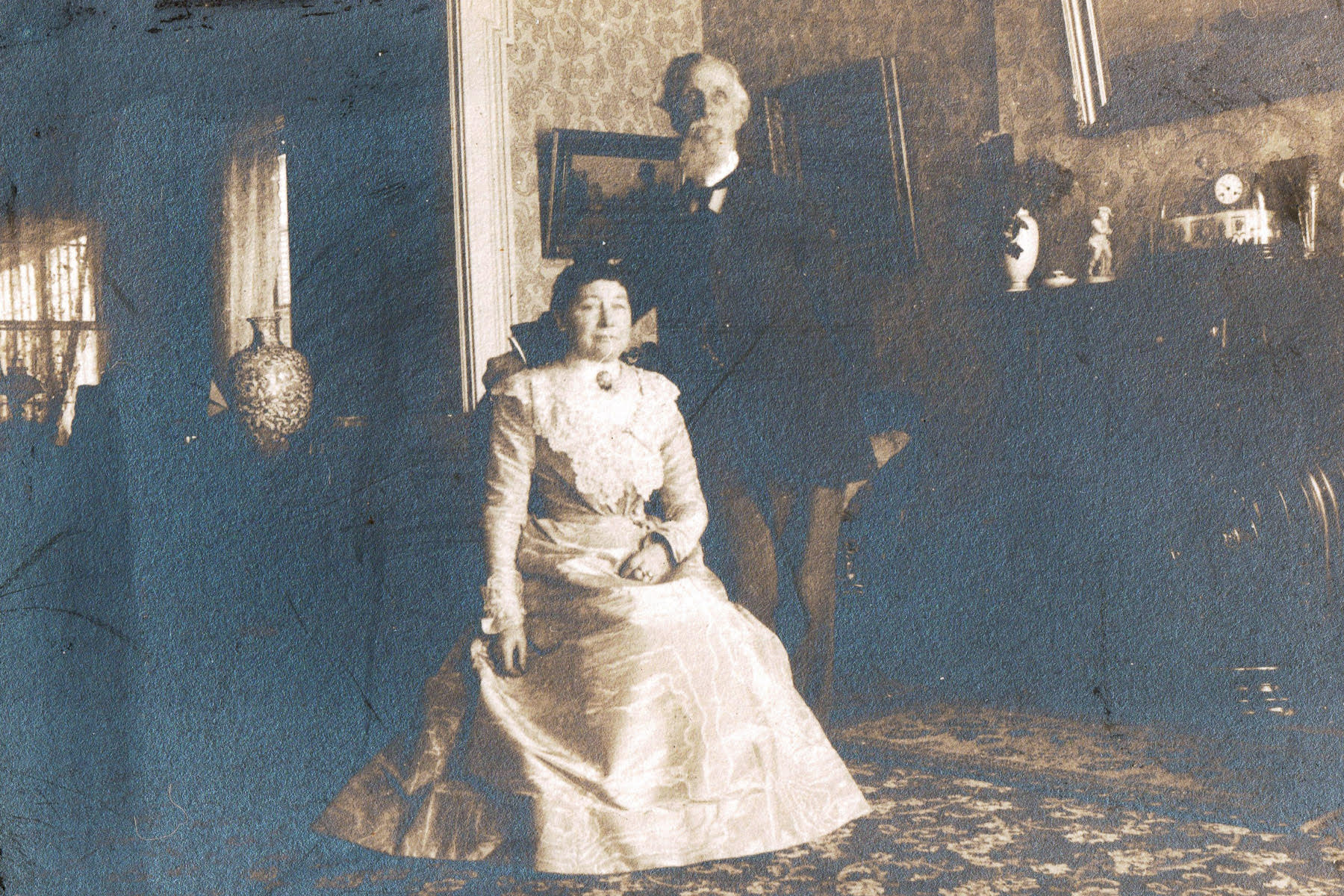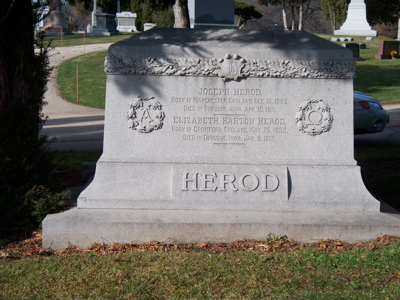Encyclopedia Dubuque
"Encyclopedia Dubuque is the online authority for all things Dubuque, written by the people who know the city best.”
Marshall Cohen—researcher and producer, CNN
Affiliated with the Local History Network of the State Historical Society of Iowa, and the Iowa Museum Association.
HEROD, Joseph
Ancestry.com--https://www.ancestry.com/family-tree/person/tree/108444909/person/150069022296/facts
HEROD, Joseph. (Manchester, England, Dec. 18, 1826--Dubuque, IA, Apr. 11, 1911). Herod came to Dubuque in 1852 and entered into MINING and smelting with John BURTON. (1) He held the position of secretary of the Iowa Falls & Sioux City Railroad during its construction, and was also interested in other railways. He entered the real estate business in 1853. He and several nephews William Burton Wallis, James Harold WALLIS, Joseph Allen Wallis, John Rider WALLIS built the COVENTRY COURT APARTMENTS.
Herod also held interests in RAILROADS including the DUBUQUE AND SIOUX CITY RAILROAD for which he served as secretary. He was one of the organizers of the DUNLEITH AND DUBUQUE BRIDGE Company and was instrumental in the development of Dubuque's streetcar system. Locally he served several terms as an alderman on the city council. (2) He held the position of treasurer of the public school board for an amazing twenty-five years before resigning in 1902 due to poor health. (3)
The following information comes from "The Wallis Family Tree and other facts" by John Rider Wallis (1959)
Early memories of Uncle Herod and Aunty center around the Christmas ritual, Uncle trimming the tree and arranging the candles all in secret after the four boys were presumably in bed. Uncle and Aunty also stayed all night Christmas Eve and in the morning with great ceremony Uncle would make his way to the library door to see if Santa Claus had finished his task-then at a signal the door would be opened with a cry that Santa had just gone up the chimney. My Christmas request year after year was for a drum and this was satisfied progressively until a snare drum fit for use in Miss Keachie's orchestra became my pride and joy.
On arrival in Dubuque, Uncle Herod busied himself in established a home and it was not long until he was ready to start construction of a typical English manor house. In the spring of 1856 bricks were selected from the brick yard producing the bricks for the Congregational Church and the construction of Derby Grange was under way. By fall the structure was enclosed and two skillful carpenters spent the winter completing the interior. All doors, window trim, and inside folding shutters for every window were created from straight grain white pine. The great fireplace in the dining room was the chief attraction of the house and for one hundred years made the dining room the focal point and family room.
It was natural and very appropriate to name the farm Derby Grange--Derby for Derbyshire, England, Aunty Herod and Grandmother's birthplace, and Grange meaning farm.
It was strange that Uncle Herod should decide upon a rural setting for his home. He was not a farmer nor did he intend embarking in farm operation. It seems to have been a trend of the times for the early city builders to local substantial brick homes in the surrounding area.
It is rather a mystery whether Uncle and Aunty Herod actually settled and lived at Derby Grange. The title passed to Grandmother, then the wife of General Stokely, then to her son Joseph, who failed to farm in a thrifty manner and sold two hundred acres. Mother stepped in to redeem and salvage the forty acres and house and buildings, saving Derby Grange for the family.
Nothing has meant so much in the life and development of the Wallis family as Derby Grange. Each summer through childhood youth, and manhood was spent at this delightful spot. I hope my children will hold choice memories of happy days at Derby. The Guest book faithfully kept recorded eery visit of every member of the family, and every visitor from 1899 to March 1946 when the property passed to Charles and Georgia Zollars.
To return to Uncle Herod's place in out story, it must be emphasized that he took the place of a father. Everything centered around Uncle and Aunty. They were as much a part of our family circle as if they were parents or grandparents. Uncle had full charge and responsibility for the city property and many farms and timber lands, both in Dubuque County and the thousand acres in Floyd County, Iowa, and father's three hundred twenty acres in South Dakota. I can remember many Saturday and Sunday trips with Tom and the surrey "with the fringe on the top" into the timbered hills to help Uncle mend line fences. Then there were picnics or Sunday drives that ended in all hands fighting forest fires started by careless hunters or railroad engines belching sparks through Durango valley.
I have many mementos of Uncle Herod's early business activities; cancelled checks as treasurer of the first street railway, one paying $400 for a team of horses for horsepower to draw the street cars, oats at 10 cents per bushel, wages a dollar or two a day, etc.
Then there were books of un-issued railroad bonds in our attic waiting to be issued and lacking the signature of Jos. Herod Secretary of the DUBUQUE AND PACIFIC RAILROAD.
In the 1890s when the high school was built on Fifteen and Locust Street, Uncle, as Treasurer of the School Board, was the watch dog of the construction. His reward was one dozen cut glass tumblers, now packed in a barrel for future use or distribution.
The position of treasurer continued for some thirty years. I remember as a small boy making the round of schools with Uncle (Tom knew where to stop at each school) to pay the teachers in hard cash. He was always received with a smile. The receipt form was signed promptly and on to the next room--then the next school.
Uncle had a storehouse of sayings and stories, many from his early youth in England-Like the story of the chimney sweep in the little Village of Eccles entering a bakery shop and asking for an Eccles cake. Taking it in his black grimy hands he said,"How much for this?" The answer-a-penny. Slapping the cake back and forth in his dirty hands, the chimney sweep said, "A penny for this? I'll give you a a'penny (1/2 penny) for it." Then the story of the rival bake shop selling meat pies. When trade was lagging in the new store a young man appeared at the old established store at a crowded time and with a sack over his shoulders made his way to the counter. Emptying the sack of two large dead tomcats, he said in a loud voice," All I can let you have today. Bring you some more tomorrow." The the true story of this baker's assistant that started a shop across the street from the old original Eccles Cake Shop and placed a large sign above the door "The original Eccles cake maker removed from the other side." This was soon answered from the other shop with a sign "The original Eccles cake maker never removed."
Uncle was a great collector of epitaphs and I have a volume published in England with items inserted, many of which he was able to recite from memory. One of his favorites was an epitaph on a New England churchyard:
We can't have everything to please us
Little Willie's gone to Jesus.
Cheer up dear friend all may yet be well
Perhaps little Willie has gone to hell.
From: The Derbyshire Connections of the Families Barton, Burton, Sellors, Stokely, and Wallis, compiled by Peter J. Naylor, 1987:
Joseph was a book keeper in the counting house of Sir James Watts, manufacturer of Manchester, England, at the time of his marriage to Elizabeth Barton (sister of Mary Barton Gell Burton Gell Stokely Wilson). Joseph's father, John Herod, was a manufacturer and dealer in furs.
From: The Wallis Family Tree and Other Facts, by John Rider Wallis, 1959: Elizabeth and Joseph immigrated to Iowa with Elizabeth's sister Mary (around 1851-1852). Joseph became John Burton's agent (Mary's second husband whom she wed in Dubuque, 1852). Joseph was an adviser to John Burton, and was the trustee after Burton's death for the daughter's (Mary Burton, who married John William Wallis) inheritance.
Derby Grange, the family's summer home, is 6 miles west of Dubuque. It is a brick home, built in 1856-1857 by Joseph Herod. According to John Rider Wallis, the Wallis/Herod families spent every summer there from 1890-1916. Mary Barton Gell Burton Stokely (her third marriage) bought Derby Grange from her brother-in-law, Joseph Herod, then gave it to her son, Joseph Stokely. He sold most of the acreage, but Mary Burton Wallis stepped in and bought back the house and 40 acres so the property could stay in the family (Derby Grange stayed in the Wallis family until 1946). The John Rider Wallis family spent summers there until 1939. It was sold to the Zollar family in 1946, to the Atkinson family after them, and it was then sold to the Mulgrew's (parents of Kate Mulgrew, actress).
Socially he was for many years identified with the Independent Order of Odd Fellows, and several other benevolent organizations. In 1850 he was married in his native country to Miss Elizabeth Barton, and in 1900, at Dubuque, they celebrated their golden wedding, and their sixty-first anniversary was celebrated February 5, 1911, at the home of his niece, Mrs. Mary B. Wallis. (4)
---
Source:
1. "Joseph Herod Called by Death," Dubuque Telegraph-Herald, April 10, 1911, p. 2
2. Oldt, Franklin. The History of Dubuque County, Iowa. Chicago: Western Historical Company, 1880, p. 804
3. Joseph Herod's obituary. Dubuque Herald-Telegraph, April 10, 1911
4. Oldt
Andrea Wallis Aven--"The Wallis Family Tree" additional information and photographs





